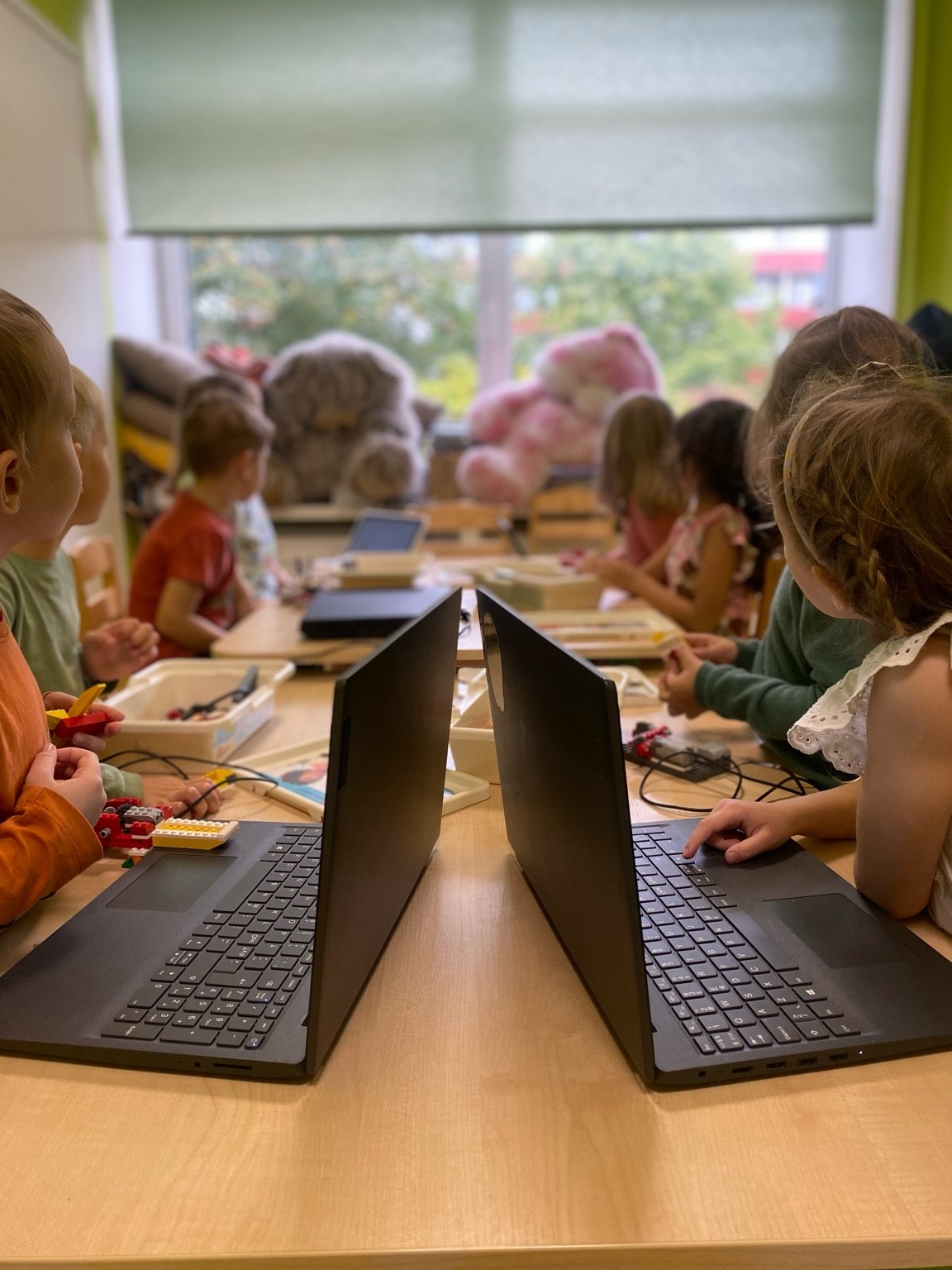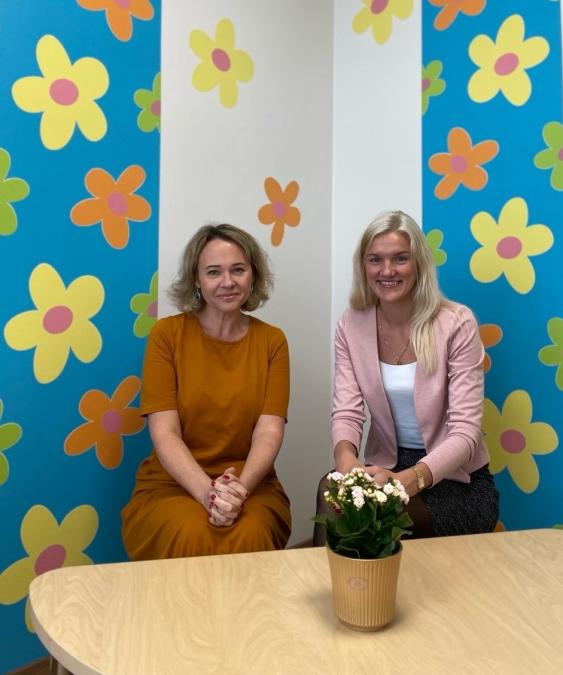Mari-Liis Knut, Head of Tallinn Liivaku Kindergarten, speaks calmly and sincerely, yet every sentence she says carries practical experience and a deep conviction: a child needs support before a formal decision, not after. After six years as a leading specialist at Rajaleidja and now as the head of Tallinn Liivaku Kindergarten, she has seen that real, lasting support only works when it becomes part of the entire school culture — not a separate system.
Support begins in the group, not on paper
“In Estonia, people often think that when a child struggles, the next step is to send them to Rajaleidja, and only then start looking for solutions,” says Mari-Liis. “But in reality, general support starts in the group — with what teachers, support specialists, and parents do together.”
According to her, this is where much of the confusion lies: general support is not the work of a specialist or the result of an official decision. It is about everyday cooperation and awareness.
“The people who know the child best are the teachers who work with them daily. When they notice that a child needs help, there’s no need to wait for a diagnosis or decision — you just start.”
At Tallinn Liivaku Kindergarten, this means setting small, realistic goals for each child as needed. For example, a teacher or parent might take just 15 minutes a day to talk, draw, or build something together — simply to be present for the child. “It may seem small, but for a child, it’s an enormous support,” says Mari-Liis.
General support is a system that grows from within
Mari-Liis believes that general support must develop from within the educational institution itself — through shared practices, agreements, and culture. At Tallinn Liivaku Kindergarten, a comprehensive support system has been established for this purpose, including a full-time speech therapist, special education teacher, social pedagogue, and a support services coordinator.
“The coordinator brings all parties — teachers, support specialists, and parents — into shared communication. It is important that the child’s support network moves together toward common goals, acting in the best interests of the child. The specialists in our kindergarten work in cooperation, not separately.
We discuss and plan together,” she adds. At the same time, it is important to understand that supporting a child does not always begin with the presence of a specialist, but with the opportunities created within the learning environment — opportunities that rely on the creativity and professional skills of an experienced teacher.
A development plan that grows with the child
At Liivaku, children who need additional support have individual development plans created in the ELIIS digital environment, accessible to both teachers and parents.
“We’ve designed these plans together with our teaching staff — they’re not reports but practical working tools,” Mari-Liis explains. “They allow us to see which areas need development and how progress is made over time.”
The plans are updated regularly throughout the school year and confirmed together with parents.
If a child has behavioral challenges, the team prepares a behavior support plan outlining clear goals and agreements with the family. “The focus is on teaching the child appropriate ways to express themselves and calm down — supporting their psychosocial development,” Mari-Liis emphasizes. This approach helps children develop positive behavior patterns even in challenging situations.
Cooperation with parents builds trust
Mari-Liis Knut repeatedly emphasizes that parents play a key role in supporting the child.
“When the family is involved and the same approaches are used at home as in kindergarten, the support truly starts to work.”
Liivaku Kindergarten values both the child and the parent. No one is born a parent — we grow together with our child. “Parents don’t need moral lessons; they need support,” says Mari-Liis. “When they feel that they are being heard, they are ready to cooperate.”
To reduce parents’ fears, a simple approach is used: meetings are not evaluations but shared reflections. “When a parent comes and sees how our support specialist works with their child, they often say afterwards, ‘This is so wonderful — of course my child should have this kind of support.’ That is the moment when change begins.”
Spaces that support both children and teachers
At Liivaku Kindergarten, various environments have been created to support both children’s development and teachers’ daily work. For example, last school year we opened a “Quiet Room” — a space where children who do not want or are unable to nap can calmly engage in quiet activities. Our kindergarten offers a wide range of extracurricular activities, from robotics to preschool preparation. These activities support children’s interests while also helping parents manage their daily schedules more easily. The largest “room” we have is our outdoor area, where we spend as much time as possible. The natural surroundings are rich, and the nearby parks further enhance our learning opportunities.
Our best ideas are born through teamwork. We have developed a mental health package for both children and teachers, emphasizing that every person’s opinion is important and valuable. Since this academic year, we also have a children’s council that gives our young learners a voice in the kindergarten community.

Digital technology and robotics open new ways of learning for children.
The rooms of the speech therapist and the special education teacher are furnished with soft seating and weighted pillows. “If a child has difficulty concentrating, sometimes it already helps when they can have a weighted pillow on their lap. It gives a feeling of security.” A corner created by the social pedagogue provides a quiet and safe environment for supporting the child.

“All these solutions have come from our team’s real needs — not from a project requirement. We don’t do things because someone says so; we create what our children and teachers genuinely need,” Mari-Liis adds.
Teacher wellbeing — the other side of support
Mari-Liis emphasizes that support isn’t meant only for children. “If a teacher is exhausted, they can’t truly support a child. ”That’s why every Liivaku employee has half an hour of quiet time each day — a personal break to rest or recharge.
Teachers and assistant teachers also meet weekly to discuss ongoing issues and share experiences. “Everyone’s voice matters. When people feel trusted, real solutions emerge,” Mari-Liis says.
Inclusive education as a daily practice
According to Mari-Liis, inclusive education is, above all, a mindset. “It’s not a major reform or a set of documents — it’s an attitude. It’s the readiness to notice, talk, try, and adapt.”
In her view, Liivaku Kindergarten is a living example of how general support can become a natural part of everyday life. “When we create an internal culture where people feel included, children feel it too. And that is the true essence of inclusive education.”
Mari-Liis Knut smiles and concludes:

